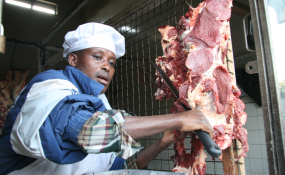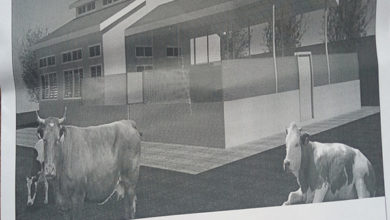Kenya: Bad Meat Exposé – LSK Calls for Action Against Supermarkets

The Law Society of Kenya has demanded immediate actions on supermarkets that use illegal and harmful chemicals to preserve meat.
In a letter to the Health Cabinet secretary, the Kenya Bureau of Standards managing director and the Council of Governors chairman, the LSK’s chief executive Mercy Wambua said steps should be taken to ensure harmful food is no longer sold in supermarkets.
The letter followed NTV’s exposé on the actions supermarkets take to keep their meat looking fresh for long, thereby preventing losses.
STEPS
Ms Wambua made suggestions including regular inspection of food handlers, publishing of names of people found tampering with food, prosecution and establishment of strict guidelines to ensure only safe preservatives are used in foods.
“Prosecute and publish the names of any persons engaged in the sale of unwholesome, poisonous, adulterated foods and ensure their licenses are cancelled upon conviction,” she said.
“Publish in the daily newspapers on a monthly basis the names of persons found to be flouting the law by selling unwholesome, poisonous and adulterated food.”
The CEO noted that this would be similar to actions the Energy Regulatory Commission takes, such as the cancellation of the licences of those who sell adulterated fuel.
FINDINGS
The investigation raised questions regarding quality and safety controls within the country’s food chain.
The most preferred chemicals belong to the sulphite family as they not only retard spoilage, but also keep meat looking fresh.
However, the NTV investigation reveals, many other undeclared and unregulated preservatives have permeated the industry.
Food experts say sulphites are generally safe if used within recommended limits, but they can cause negative side effects like nasal congestion, itchy throat, runny nose, skin rash, and hives in some people.
The US banned their use as preservatives in 1986.
Source: allafrica.com




